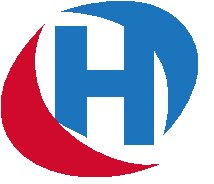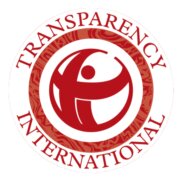Best Health Care Lawyers in Papua New Guinea
Share your needs with us, get contacted by law firms.
Free. Takes 2 min.
Or refine your search by selecting a city:
List of the best lawyers in Papua New Guinea
About Health Care Law in Papua New Guinea
Health care law in Papua New Guinea involves the regulations and legal frameworks governing the provision of health services, medical practice, and public health safety. The country's health care system is primarily operated by the government, with services provided through a network of hospitals, clinics, and aid posts. Health care in Papua New Guinea faces unique challenges due to geographical barriers, cultural diversity, and resource limitations. The legal system plays a crucial role in ensuring the efficacy, safety, and accessibility of health services, addressing issues such as patient rights, medical negligence, and public health policies.
Why You May Need a Lawyer
There are several situations where individuals may require legal assistance in the field of health care in Papua New Guinea. People may need a lawyer to address medical malpractice claims, ensure compliance with health regulations, resolve disputes over patient rights, or navigate compensation claims. Legal counsel can also assist in drafting and interpreting health care contracts, working on public health advocacy, or dealing with issues surrounding health care access and quality. For health care providers, legal advice may be necessary to address employment law issues, licensure, and regulatory compliance.
Local Laws Overview
The legal framework for health care in Papua New Guinea is influenced by several key pieces of legislation and policies. The Public Health Act regulates the general health and safety standards for health care provision. The Medical Registration Act outlines the requirements for medical practitioners regarding licensure and ethical practice. Health care facilities are also subject to regulations under the Health Services Act, which governs the management and operation of health services in the country. Furthermore, patient rights are protected under various legal provisions, ensuring confidentiality, informed consent, and the right to receive quality health care services.
Frequently Asked Questions
1. What is the primary legislation governing health care in Papua New Guinea?
The primary legislation includes the Public Health Act, the Medical Registration Act, and the Health Services Act, among others.
2. How can I sue for medical malpractice in Papua New Guinea?
You will need to provide evidence of negligence by a healthcare provider, and it is advisable to consult with a lawyer experienced in medical malpractice cases.
3. What are my rights as a patient in Papua New Guinea?
Patients have the right to receive information about their treatment, consent to or refuse treatment, and expect confidentiality regarding their medical records.
4. Can I access public health care services for free?
Basic health care services are subsidized by the government, but there may be costs associated with certain treatments or medications.
5. How is informed consent handled in medical procedures?
Patients must be given adequate information about proposed procedures, including the risks and benefits, to make informed decisions.
6. What can I do if I experience discrimination in a health care setting?
You can file a complaint with the relevant health authority and seek legal advice to address the issue.
7. Are there specific laws regulating pharmaceutical drugs?
Yes, the regulation of pharmaceutical drugs is governed by laws such as the Medicines and Cosmetics Act, ensuring their safety and efficacy.
8. How can health care providers ensure compliance with laws?
Health care providers should stay informed about current regulations and work with legal experts to maintain compliance with all health care laws.
9. What is the role of the government in health care provision?
The government is the primary provider of health services, responsible for policy development, funding, and regulation of the health sector.
10. Where can I report public health hazards?
Public health hazards should be reported to the Department of Health or the local health authority for investigation and action.
Additional Resources
For further assistance, individuals can reach out to the Department of Health, the National Department of Public Health, or the Medical Board of Papua New Guinea. Non-governmental organizations focused on health care advocacy and legal aid services can also provide valuable support. Legal firms specializing in health care law and health policy research institutions may offer additional guidance and representation.
Next Steps
If you require legal assistance in health care, consider consulting with a lawyer who specializes in health care law to discuss the specifics of your case. Gather all relevant documentation, such as medical records and correspondence related to your issue. Additionally, make a list of questions or concerns you have to ensure a productive consultation. Engaging with community health organizations or advocacy groups can also provide support and information as you navigate the challenges in the health care system of Papua New Guinea.
Lawzana helps you find the best lawyers and law firms in Papua New Guinea through a curated and pre-screened list of qualified legal professionals. Our platform offers rankings and detailed profiles of attorneys and law firms, allowing you to compare based on practice areas, including Health Care, experience, and client feedback.
Each profile includes a description of the firm's areas of practice, client reviews, team members and partners, year of establishment, spoken languages, office locations, contact information, social media presence, and any published articles or resources. Most firms on our platform speak English and are experienced in both local and international legal matters.
Get a quote from top-rated law firms in Papua New Guinea — quickly, securely, and without unnecessary hassle.
Disclaimer:
The information provided on this page is for general informational purposes only and does not constitute legal advice. While we strive to ensure the accuracy and relevance of the content, legal information may change over time, and interpretations of the law can vary. You should always consult with a qualified legal professional for advice specific to your situation.
We disclaim all liability for actions taken or not taken based on the content of this page. If you believe any information is incorrect or outdated, please contact us, and we will review and update it where appropriate.
Browse health care law firms by city in Papua New Guinea
Refine your search by selecting a city.















